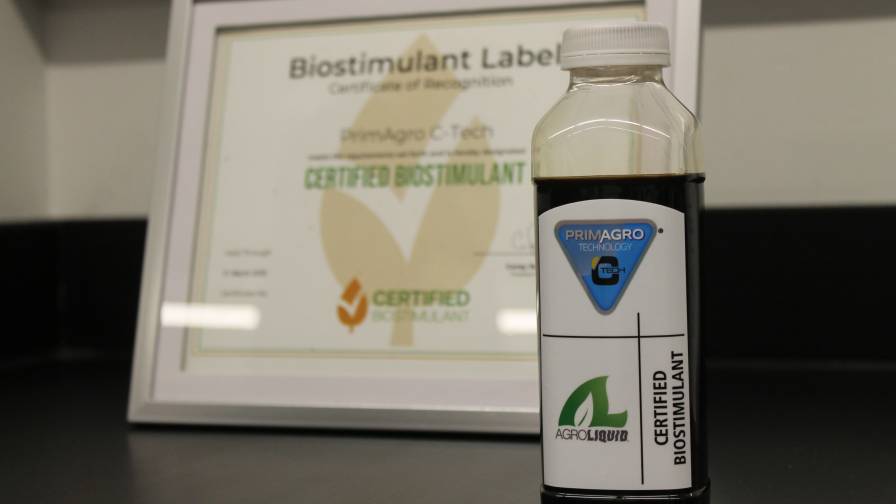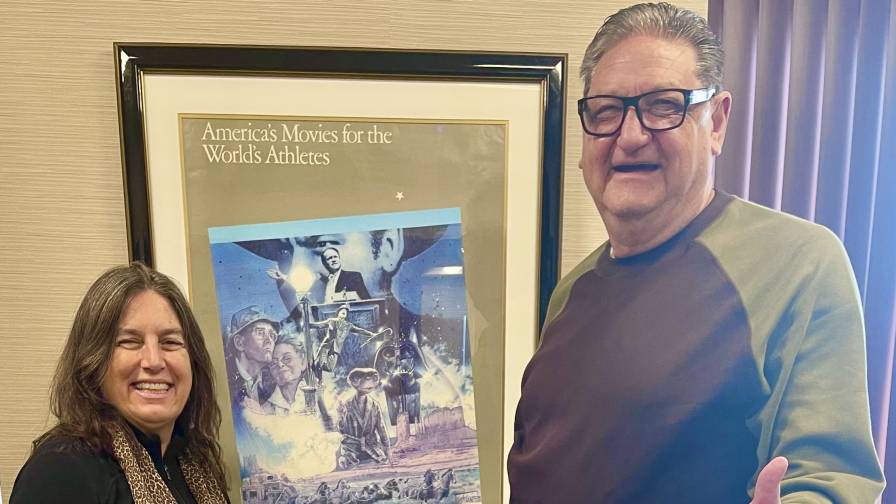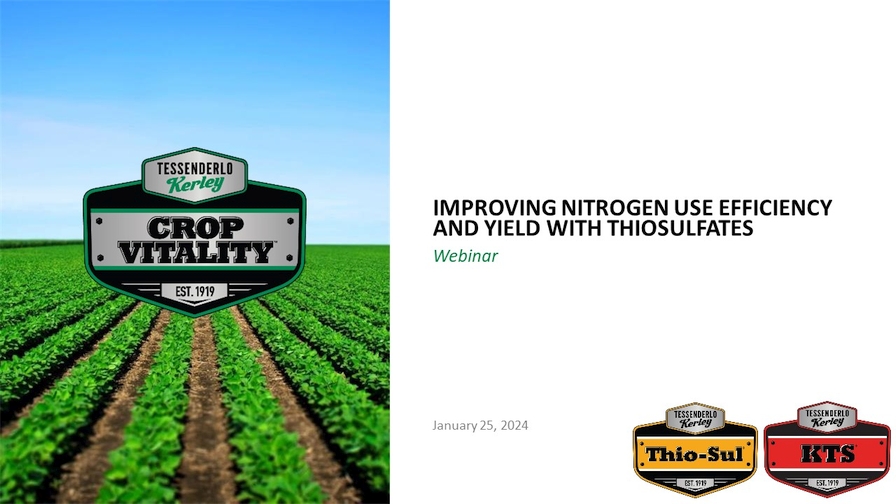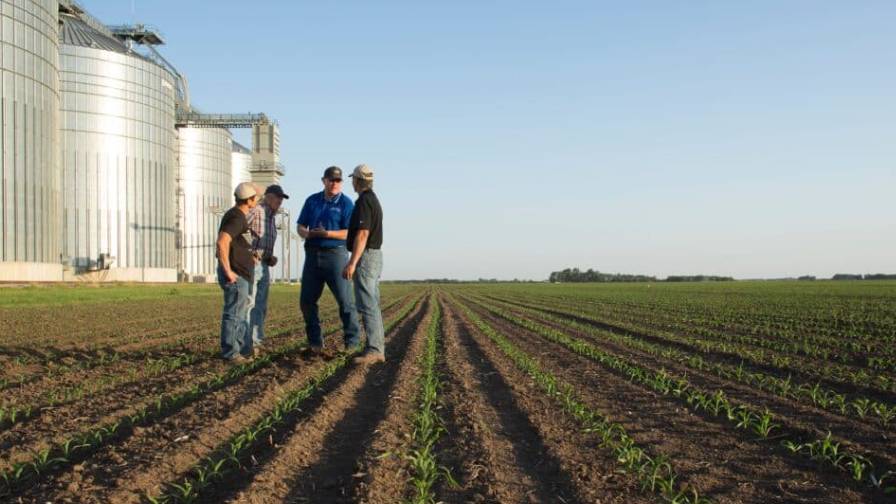ARA 2017: FBN Makes its Case for Industry Acceptance (OPINION)
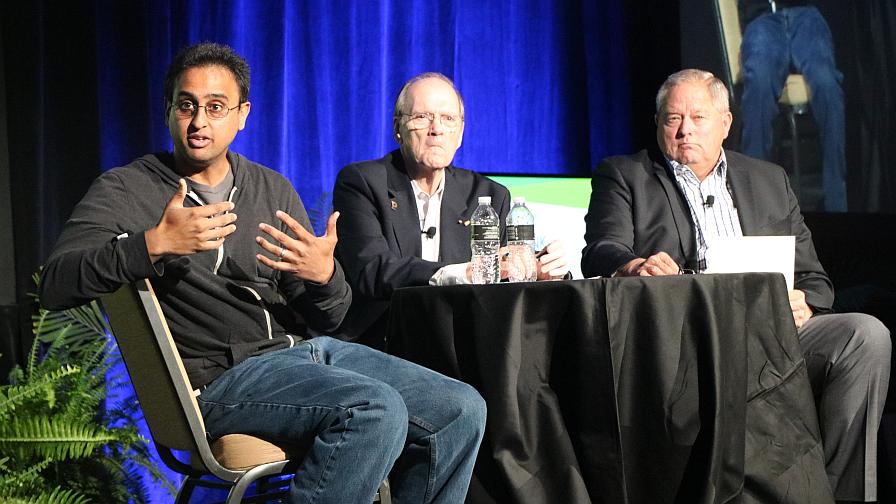
A panel discussion on Alternative Business Models at ARA 2017 featured (from left) Amol Deshpande, CEO and co-founder at Farmers Business Network; Dr. Dave Downey, Professor Emeritus at Purdue University; and Steve Watts, a partner with the Farrell Growth Group.
The annual ag retail leadership winter retreat known as the Agricultural Retailers Association (ARA) Conference and Expo took its talents to the desert this year, and let me be the first (and only) to tell you, the hot conferencin’ and networkin’ action was anything but dry, folks. 😉
Claiming a healthy chunk of the lush and tony Arizona Biltmore Resort in Phoenix for the better half of a week, an appearance by the founder and CEO of the often-hated-yet-previously-duplicated (Rooster.com) Farmers Business Network, Amol Deshpande, as well as a send-off from sitting ag secretary Sonny Perdue, highlighted a week of good food and drinks and conversation, and, oh yeah, there was some dicamba stuff in there, too (check out CropLife.com in the coming days for that).
Anyways, for the purpose of this article we’ll skip all the political and dicamba stuff (for now) and get right to the juicy stuff.
The Main Event
The ornately adorned and tastefully illumined McArthur Ballroom was the venue for the meeting’s promised Roman Coliseum-esque clash. Helping to prime the pump, if you will, for the rather interesting discussion (and perhaps make many in attendance REALLY start to take the startup seriously) was news announced that very morning that FBN had just raised $110 million in Series D funding, thought to be the largest single venture capital round in digital ag history to this point (BTW, great timing on that announcement, FBN).
Refereed by Purdue University’s esteemed Dr. Dave Downey, the panel featured the aforementioned Deshpande, fighting out of the blue corner and adorned in the popular Silicon Valley programmer bro ensemble of a half-zip American Apparel hoodie and blue jeans with tennis shoes (perhaps here it bears noting that, as many in this industry have pointed out on occasion, I may not be the sharpest dresser out there myself). His opposition for the hour-long battle, and fighting out of the red corner, was Steve Watts from Farrell Growth Group, a consulting firm for the ag retail industry headed up by the venerable Ron Farrell. Watts arrived to the ring replete in the more traditional conference-going attire of suit and tie. (Alright folks, the jigs up, nobody fought at the show, and this was really kind of a lame bit anyways, so I’ll just drop the whole boxing thing now.)
Anyways, the session was structured so that both sides had a chance to make prepared remarks on their view of FBN and e-commerce-based retail channel “disruption” efforts in crop protection product sales in general, and then close out with a brief roundtable discussion where both sides could talk through the issues – shepherded by the always-gracious Downey, of course – and there was even time for a few audience Q&A questions. What Fun!
Up first was Mr. Watts, who by all accounts was measured and razor-sharp articulate in presenting his views on FBN, while also mixing in a few cutting remarks, which I thought was to be expected with him being a 30+ year ag retail industry vet, after all. Still, Watts did express admiration for Deshpande and the FBN outfit, clearly stating that “I respect his company’s innovative approach.”
Much of Watt’s time in the first half of the meeting was spent encouraging the ag retail leadership in the audience to begin taking e-commerce threats as serious pressure to their future right to operate, that “you can see how it played out with the Sears and the Kmarts…virtually all of the traditional retailers in the U.S. were late to capitalize on e-commerce, there was an institutional denial.”
Now, he warned, it’s no longer a question of will e-commerce penetrate agriculture, but how deeply or how far will they penetrate.
Still, there is hope, as Watts also believes crop protection products “will be the most difficult retail industry to disrupt with e-commerce…and I don’t think our high-quality CCAs and PCAs will be sidelined anytime soon by data crunching software.”
Before turning the podium over to Deshpande for his remarks, Watts sagely advised retail that “now is the time to take affirmative action. It is still our game to lose, but it is a game that can be lost.”
Taking the podium amidst more good-natured, jocular-type joking (did somebody say locker room talk?) about his wardrobe, Deshpande opened his remarks by telling the room that his main goal in making the improbable appearance at ARA was to seek out partnerships and build relationships within the retail channel. I will admit, I did like his point that, coming from a West Coast tech background, “in tech, companies that hate each other work together all the time, and they can end up doing some pretty great work, too.” That one drew a nice chuckle from the crowd and, again, we all know a little humor goes a mile in diffusing such a, well, awkward encounter.
Other points from Deshpande that bear mentioning are that he doesn’t see FBN as a crop inputs business or an ag retailer, that “we are a data analytics company…and we’re not in the business of writing prescriptions.”
He also seemed to go out of his way to downplay FBN Direct’s presence in the seed market, admitting that the company does sell some seed and has plans to seek out partnerships in that space, but adding that, at the moment, it would be inaccurate to describe them as seed salesmen. I found these statements by Deshpande somewhat odd, given the high prominence the seed order plays in the whole agronomic product purchasing plan process for most growers. We’ve heard for years that if you get the seed order, you’ve probably got the herbicide and maybe a nice piece of the fertilizer spend for the year, too. IF FBN is intent on making significant in-roads in selling more crop protection products across more acres (i.e., growing its Direct business), I’d think they’d want a pretty hearty presence in seed.
Anyways, back to Deshpande’s talk. He also shared that the price of an FBN membership is still around the $600 mark, and he says the company had a nice November, adding 1 million acres to bring its total number of acres touched to 17 million. “We believe we will be on 25-30% of all acres in the U.S. in the next 18 months.”
Roundtable Review
After some quick transitioning remarks from Downey to again set the stage, the three panelists sat down for the meat of the session, the roundtable.
Watts was given first draw, and he came out strong by pointing out, in his opinion, the irony in FBN and its marketing efforts often criticizing the very crop protection rebate programs that he reasons results in unsold stock being moved at wholesale to the broker market, where many believe FBN must be getting a majority of its hard chemistries from. Given the chance to respond, Deshpande countered that he has worked in agriculture for the majority of his career, and still he doesn’t understand the model or methods for revealing prices for product to farmers, and he says his members are also fed up with the lack of price transparency in crop protection. He also repeatedly hammered home the point that everything FBN does is for our farmer-members, and thus at the direction of the group’s farmer members.
Now seemingly with the ball in his court, Deshpande told the room of retailers that there are no volume discounts or special pricing tiers in Direct, that every farmer, regardless of size or location, pays the same price for the same product. I definitely remember looking around and seeing a few heads nodding in agreement as he made those remarks, and part of Steve Watts’ closing address at the conclusion of the roundtable cautioned that some operations may have to take a hard look at their pricing structures going forward if they wish to remain relevant amid competition from FBN – or whoever ends up taking the CPP e-commerce market across the goal line.
Deshpande at one point argued that Direct is the first truly online crop protection shopping experience in the history of U.S. farming, in that it offers a fully-integrated online shipping and delivery experience, and he also revealed that the company “will not make any special deals with any manufacturers that ask us to in turn stop moving generic products, or any products that our farmers ask that we carry.” Again, always putting their farmer-members first, even when it could be argued at times that philosophy has come back to hamstring the outfit financially.
Recapping 2017 under the program, Deshpande shared that FBN made “thousands and thousands” of successful on-farm deliveries of product (I’ve pressed Charles Baron, VP of Procurement, on this in interviews in the past, and to this point the company has respectfully declined sharing exact figures with me) and forecasts making “tens of thousands” in 2018. Perhaps sensing that he was speaking to a room clearly more salt-of-the-earth than white collar, I’ve got to admit his pledge that “most of the hiring we will do in the next year is in Rural America, we want to create jobs and bring technology jobs to Rural America” probably again scored him some points with many in the room.
Closing out the session after a brief three-question Q&A that saw Deshpande dance a splendid little jig right around a pointed question on how the company handles soybean replants (a previous slide shown in the morning session stated that 25-30% of all U.S. soybean growers had to replant in 2016) from longtime Iowa ag broadcaster Ken Root, Watts was again invited to the podium to offer his final thoughts, to deliver the “What the heck do we do now?” advice everyone was looking for.
“The battle for the value conscientious buyer will be waged for the next 10 years. Ag retailers need to recalculate our thinking on what services we are offering, and whether those services are still relevant with all of, or even some of, our customers. After all, it is the customer in the end that ultimately decides what is relevant.”
My final thoughts after sifting through it all? I think both sides had their fair share of valid points. Like Steve Watts said, e-commerce is not going to fail anytime soon, and as more and more consumers embrace the online shopping experience, there will be those that choose convenience and lower prices over service every time. Ag retailers have to figure out how to stay relevant to, and in front of, those customers — if they intend to do business in that arena — or figure out ways to package so-called “soft” services in a way that is sustainable to both the operation and its spend-weary grower-customer’s pockets. I’d also be remiss by not mentioning the obvious courage and conviction in his companies’ philosophies that Deshpande displayed by appearing at ARA. You could tell by the end of the panel that the young CEO had definitely won over at least a portion of the room simply by showing up and being game for the whole thing, so I’d think perhaps FBN might find a few new retail partners from which to source product as a result.
And really, as long as the one at the center of all of this, the farmer, is happy, that’s all that truly matters, right?

